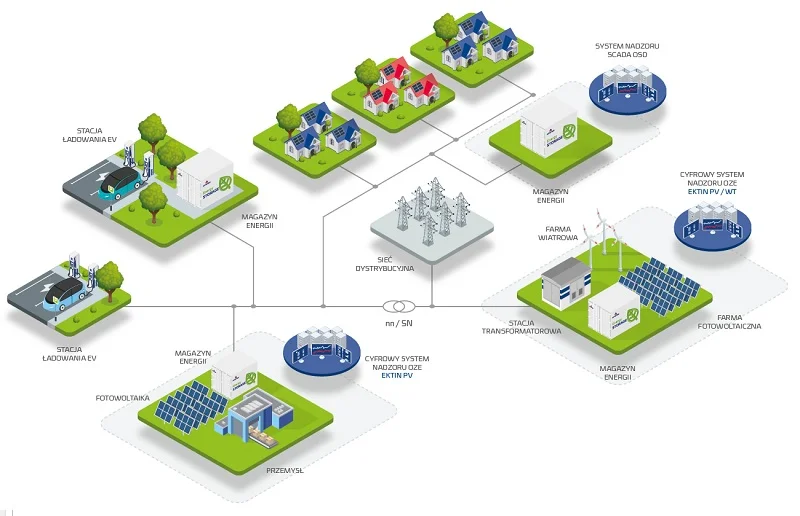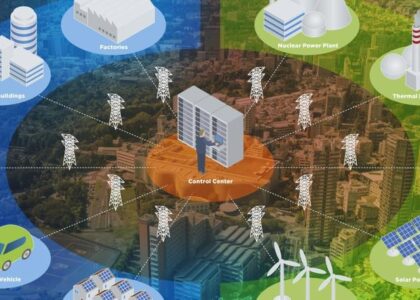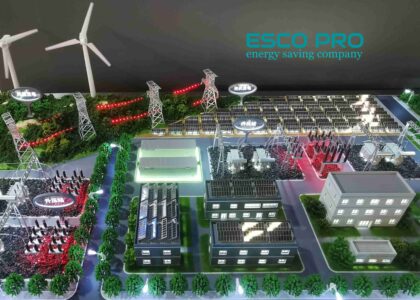to stabilize and optimize the power grid and to professionally organize energy distribution
A modern approach to energy management
Distributed energy is a modern approach to energy management that involves the production of electricity in various locations, often on a small scale, in contrast to traditional large power plants. These systems are integrated with the main power grid, but can also operate autonomously. Distributed energy production is based on renewable energy sources (RES) and energy storage, which allows for the stabilization and optimization of the power grid.
Advantages of distributed energy
Reduction of transmission losses
One of the biggest challenges of traditional energy systems is transmission losses that occur when transporting energy over long distances. Distributed energy minimizes these losses through local energy production and consumption.
Stability and security
Distributed systems increase the stability and security of the power grid, reducing the risk of power outages. Local energy sources can operate independently of the main grid, ensuring continuity of supply in the event of a failure.
Flexibility and scalability
Distributed energy is extremely flexible and can be easily scaled to meet growing needs. Small systems can be gradually expanded, allowing energy production to be adjusted to growing demand.
Sustainable development
The use of renewable energy sources in distributed systems promotes sustainable development. Reducing CO2 emissions and other harmful substances contributes to environmental protection and improving the quality of life.
Autonomous energy islands
One of the most advanced solutions in the field of distributed energy is autonomous energy islands. These are integrated systems that can operate independently of the main power grid. They consist of various renewable sources (RES), such as photovoltaic panels, solar energy converters, wind turbines, cogeneration systems and energy storage, which ensure the continuity of energy supply.
Benefits of autonomous energy islands
- Grid stabilization: Autonomous power islands ensure grid stability, reducing the risk of power outages.
- Power backup: With energy storage, energy islands can collect excess energy and use it during periods of high demand.
- Frequency Stabilization: Autonomous power management systems monitor and regulate frequency, ensuring optimal operating conditions for electrical devices.
- Voltage stabilization: Autonomous power islands not only ensure grid stability, but also maintain optimal voltage, which is crucial for reliable operation of electrical devices. Voltage stabilization is achieved by monitoring and regulating voltage levels in real time, which prevents overloads and network failures.
- AC symmetry: In distributed systems, maintaining AC symmetry is of particular importance. Current asymmetry can lead to inefficiency and problems with the operation of devices connected to the network. Autonomous energy islands, thanks to advanced energy management systems, maintain the balance between the current phases, which ensures smooth and efficient operation of the entire system.
- Self-consumption of energy: Local energy production and consumption allows for increased efficiency and reduced transmission losses.
- Self-balancing: Energy islands can balance energy production and consumption on their own, reducing the load on the main grid.





